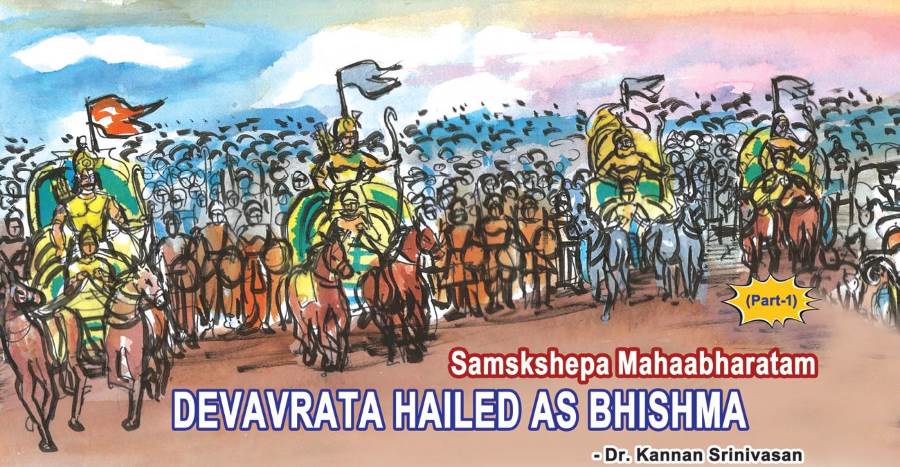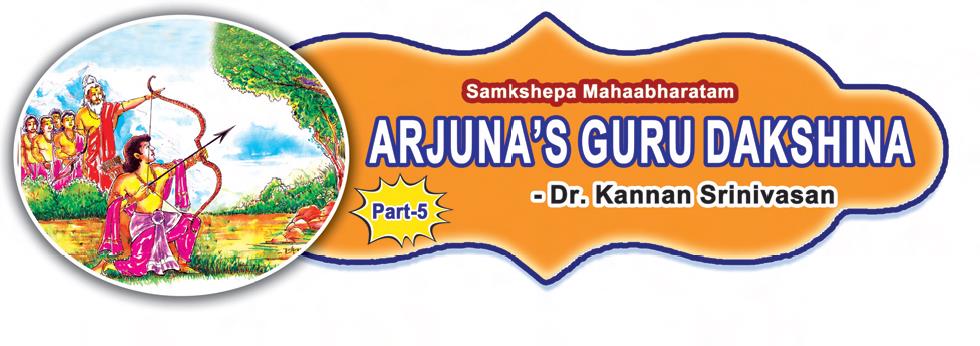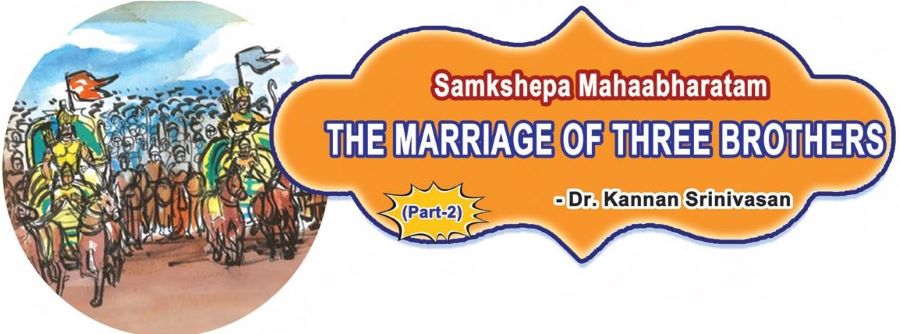Killing of Bakasura Samskhepa Mahabharatam – Introduction Mahabharatam authored by the supreme Vedavyasa Maharishi hailed rightfully as the fifth Veda is a priceless treasure house of ancient wisdom that has an amazing and boundless story value in addition to a detailed exposition of our ancient culture, heritage, ethos, dharma, raja niti, archery, war, philosophy, spirituality, Read More
Tag: Samskhepa Mahabharatam
It is proposed that the entire gamut of Mahabharatam be presented in a concise story form in 18 parts in a series titled “Samskhepa Mahabharatam.”
Arjuna’s Guru Dakshina (Part 5 of Samskhepa Mahabharatam)
Part 5 of Samskhepa Mahabharatam – Arjuna’s Guru Dakshina Samskhepa Mahabharatam – Introduction Mahabharatam authored by the supreme Vedavyasa Maharishi hailed rightfully as the fifth Veda is a priceless treasure house of ancient wisdom that has an amazing and boundless story value in addition to a detailed exposition of our ancient culture, heritage, ethos, dharma, Read More
Dronacharya – Supreme Master Of Archery (Part 4 of Samkshepa Samskhepa Mahabharatam)
Dronacharya – The Supreme Master Of Archery Dronacharya was the son of the great sage Bharadvaja. Being a Brahmana, he learnt the Vedas and became proficient in the Vedic scriptures. However, his special interest was only in Dhanur Vidya. He learnt from his father and also from sage Agnivesa. Drupada, the prince of Panchala kingdom Read More
The Marriage of 3 Brothers – Dhrutarashtra, Paandu and Vidura (Part 2 of Samskhepa Mahabharatam)
Samskhepa Mahabharatam – Introduction Mahabharatam authored by the supreme Vedavyasa Maharishi hailed rightfully as the fifth Veda is a priceless treasure house of ancient wisdom that has an amazing and boundless story value in addition to a detailed exposition of our ancient culture, heritage, ethos, dharma, raja niti, archery, war, philosophy, spirituality, description of celestials, Read More
Devavrata Hailed as Bhishma (Part 1 of Samskhepa Mahabharatam)
Devavrata Hailed as Bhishma Samskhepa Mahabharatam – Introduction Mahabharatam authored by the supreme Vedavyasa Maharishi hailed rightfully as the fifth Veda is a priceless treasure house of ancient wisdom that has an amazing and boundless story value in addition to a detailed exposition of our ancient culture, heritage, ethos, dharma, raja niti, archery, war, philosophy, Read More
Swayamvara of Draupadi (Part 8 of Samskhepa Mahabharatam)
Swayamvara of Draupadi Many kings came to Panchala for the grand Swayamvara of Draupathi / Draupadi. Duryodhana, Karna, Sisupala, Salya and Jarasandha participated. Lord Krishna and Lord Balarama also attended the Swayamvara. All of them were invited with due respect by King Drupada, the beloved father of Draupathi. A lot of entertainment shows including music Read More




